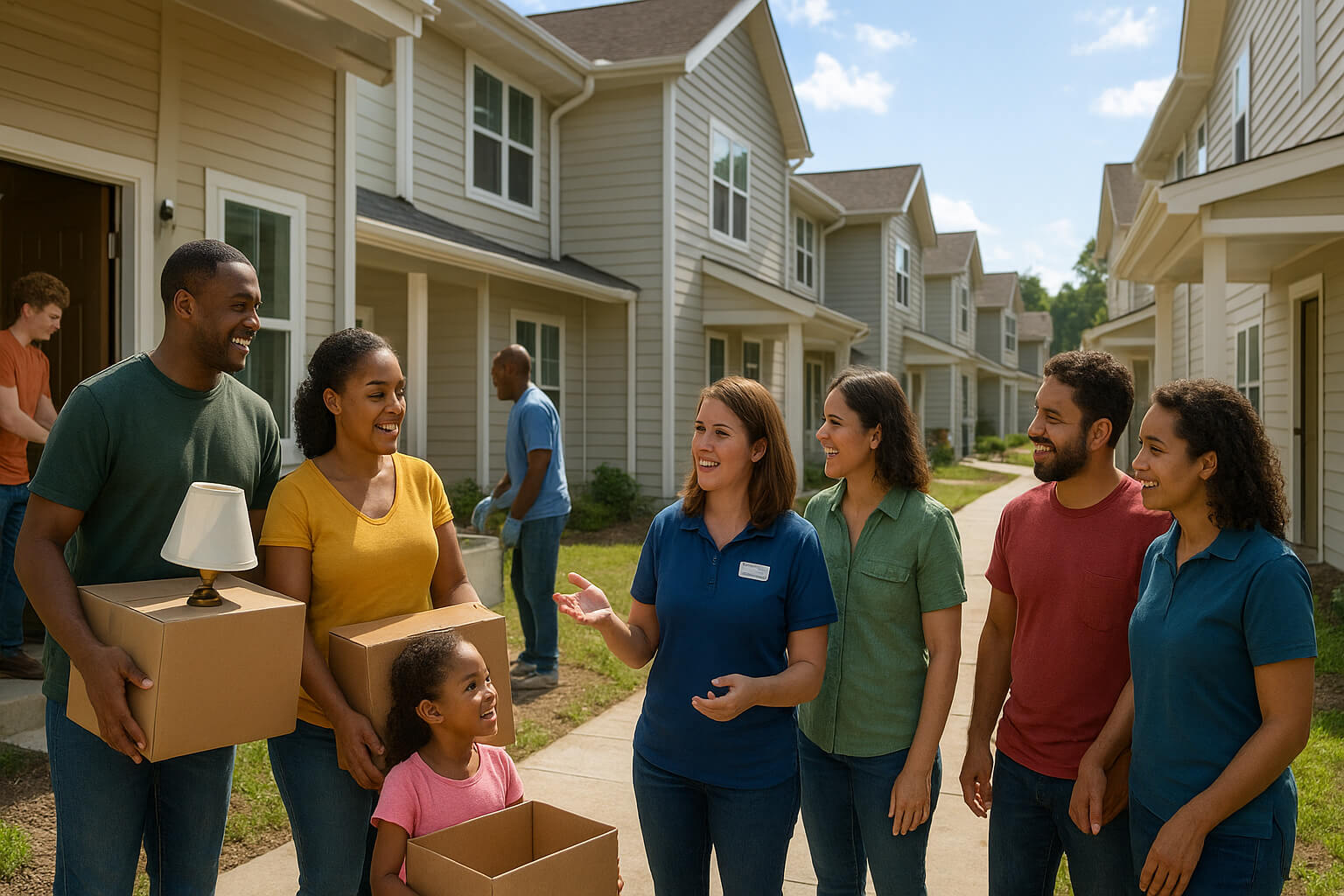Affordable housing is not just a roof over one’s head—it’s a foundation for economic opportunity, educational success, community well-being, and public health. It influences nearly every aspect of life. Without access to affordable homes, millions of individuals and families around the world face an uphill battle against poverty, instability, and health risks. This makes affordable housing one of the most pressing and far-reaching social issues of our time.
Why Affordable Housing Matters
1. Economic Stability
Affordable housing enables individuals and families to allocate more income toward essentials like food, healthcare, transportation, and education—rather than spending disproportionate amounts on rent or mortgages. When housing consumes less of a household's income:
- People are more likely to retain stable employment.
- Families can save and invest in their futures.
- Children benefit from a stable living environment, improving school attendance and academic performance.
Fact: According to the U.S. Department of Housing and Urban Development, families spending more than 30% of their income on housing are considered “cost-burdened.”
2. Health and Safety
Substandard or unaffordable housing is often linked to:
- Overcrowded conditions, increasing the risk of illness and the spread of disease.
- Unsafe infrastructure, such as mold, pests, poor insulation, or lack of heating and cooling.
- Mental health strain from financial stress and housing insecurity.
In contrast, stable and affordable homes:
- Provide safer, cleaner living environments.
- Allow individuals to focus on preventive healthcare.
- Support healthier family relationships and mental well-being.
3. Community Development
Affordable housing strengthens communities by:
- Encouraging long-term residency, which builds stronger social bonds.
- Supporting local economies through increased consumer spending.
- Creating diverse neighborhoods, fostering inclusivity and cross-cultural understanding.
When people aren’t forced to move frequently due to rising rents or poor conditions, they’re more likely to invest time and resources into improving their communities.
Related Reading: Addressing Child Hunger & Homelessness
External Resource: Habitat for Humanity – Affordable Housing Solutions
Strategies to Provide Affordable Housing
1. Government and Policy Initiatives
Governments play a pivotal role in setting the tone for affordable housing through legislation, funding, and incentives. Key strategies include:
- Zoning reforms that encourage mixed-income developments.
- Housing choice vouchers (like Section 8 in the U.S.) to help low-income families afford private rentals.
- Inclusionary housing policies requiring developers to include affordable units in new projects.
- Public housing programs maintained and modernized to meet growing needs.
The challenge: Balancing market interests with equitable housing access requires sustained political will and community support.
U.S. Department of Housing and Urban Development (HUD)
2. Nonprofit and Community-Based Programs
Nonprofits and community organizations act as essential partners in bridging housing gaps. Their work includes:
- Building or renovating homes with volunteer labor and donated materials (e.g., Habitat for Humanity).
- Offering rental assistance and eviction prevention programs.
- Providing housing counseling for first-time buyers and at-risk renters.
- Partnering with local governments to create sustainable housing solutions tailored to community needs.
Related Reading: How Food Banks Make a Difference in Communities
These groups not only offer immediate support but also help build a long-term culture of housing justice.
3. Individual Actions and Community Support
Every person can contribute to the solution. Even small actions add up:
- Donate to housing-focused charities and nonprofit developers.
- Volunteer in housing construction or home improvement programs.
- Educate yourself and others about housing inequity.
- Advocate at the local level—attend city council meetings, support tenant rights, and vote on housing-related policies.
National Low Income Housing Coalition
Community awareness and grassroots action can pressure policymakers and businesses to prioritize inclusive development.
Benefits of Accessible Affordable Housing
Accessible and affordable housing generates positive ripple effects across society:
- Reduces homelessness, alleviating strain on shelters and emergency services.
- Lowers crime rates in communities where residents have stable living environments.
- Improves education outcomes for children in secure housing.
- Increases workforce participation by allowing people to live closer to job centers.
- Strengthens disaster resilience, especially when housing is built to withstand climate-related events.
- Promotes environmental sustainability through green, energy-efficient affordable developments.
Barriers to Overcome
Despite clear benefits, challenges remain:
- Rising land and construction costs limit new affordable development.
- Community resistance (NIMBYism) can stall or block projects.
- Underfunding of public housing has led to deteriorating conditions in many cities.
- Systemic inequalities continue to limit access for marginalized groups, including people of color, immigrants, and people with disabilities.
Overcoming these challenges requires cross-sector collaboration and long-term commitment.
Conclusion
- Affordable housing is more than just four walls and a roof—it’s a springboard for opportunity, a tool for social equity, and a means of building strong, thriving communities. It impacts health, education, economic security, and quality of life in fundamental ways.
- By supporting policy reforms, community-based initiatives, and individual actions, we can move closer to a future where every person has a place to call home—not as a privilege, but as a basic human right.
- Let’s commit to building that future together.
